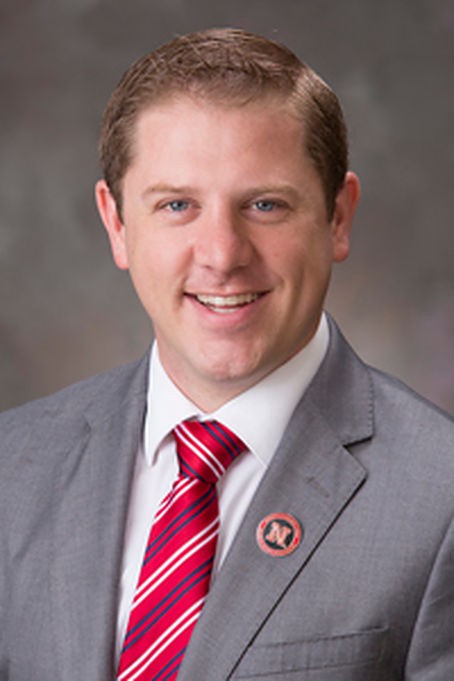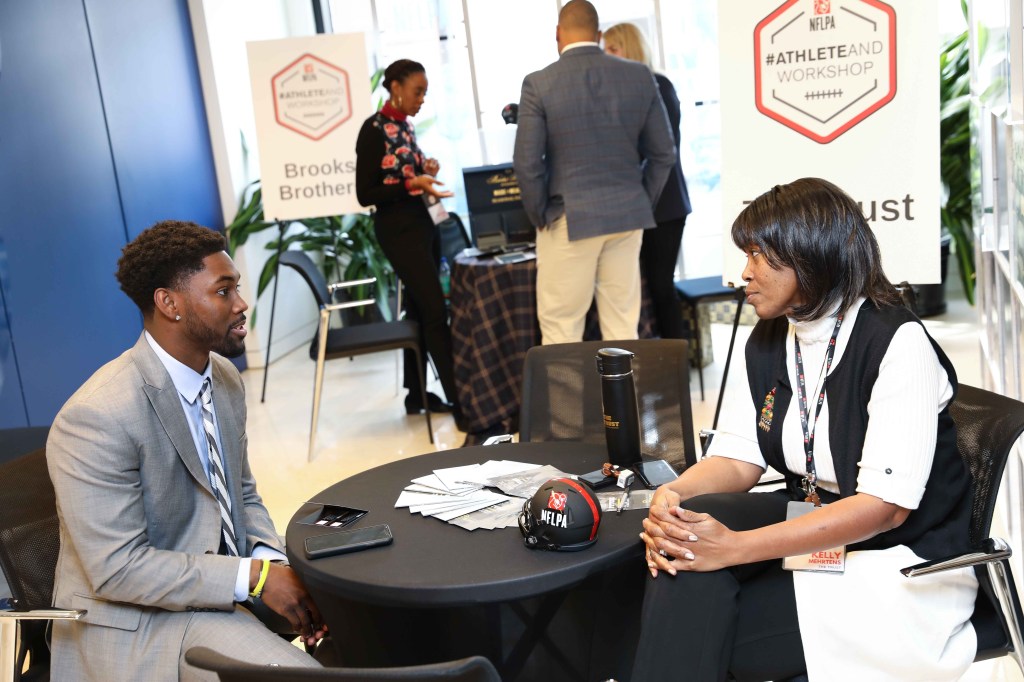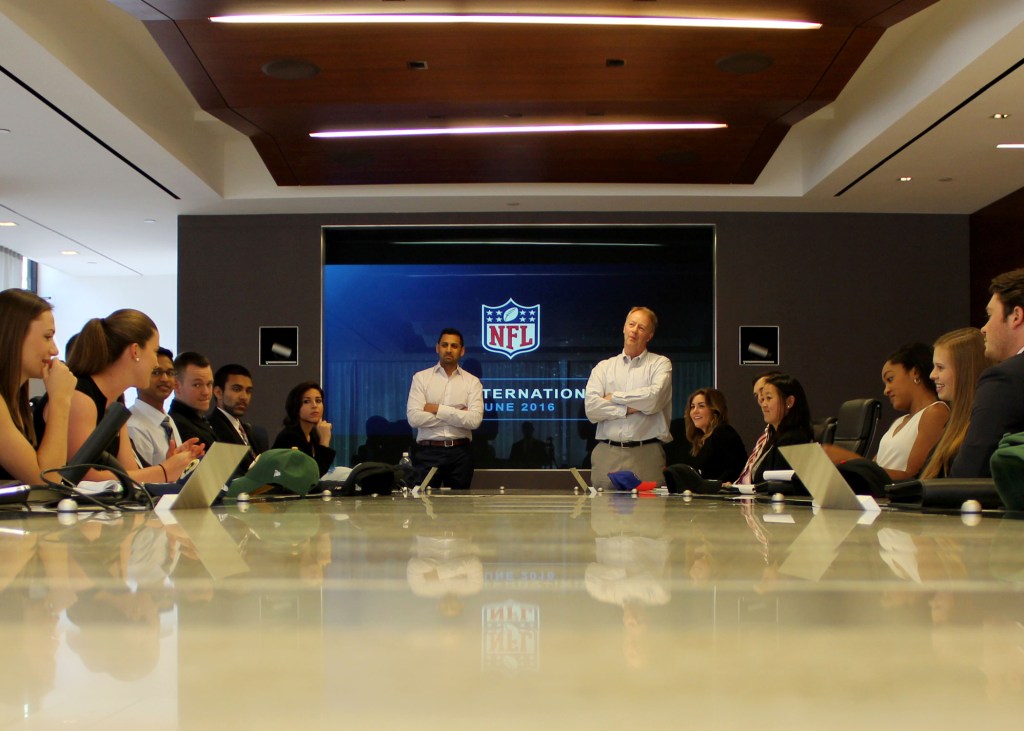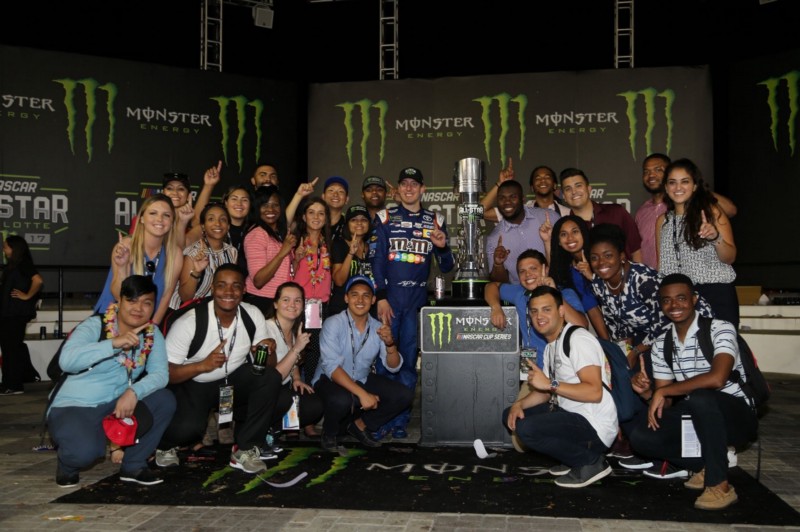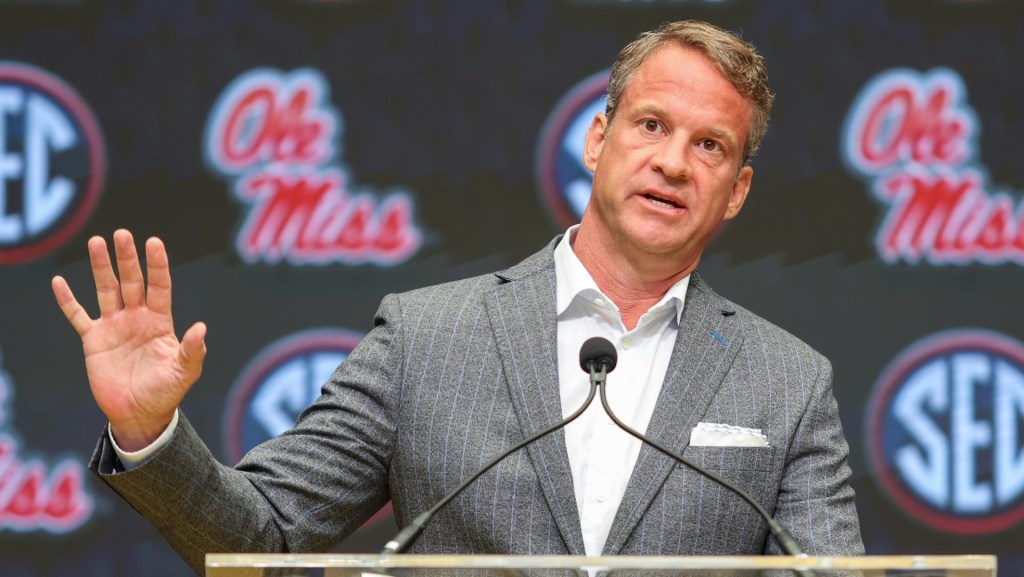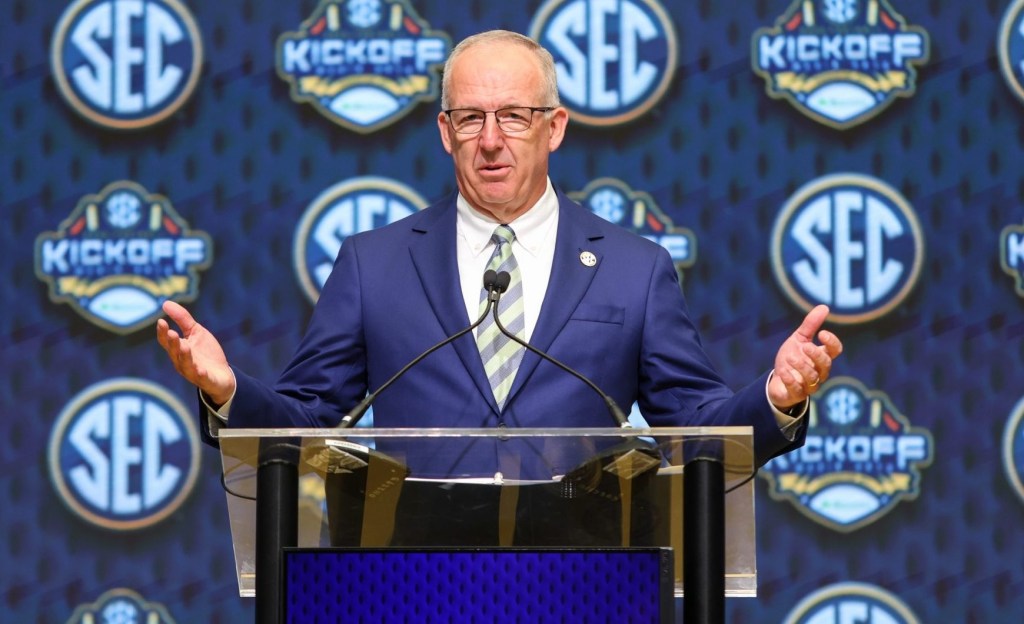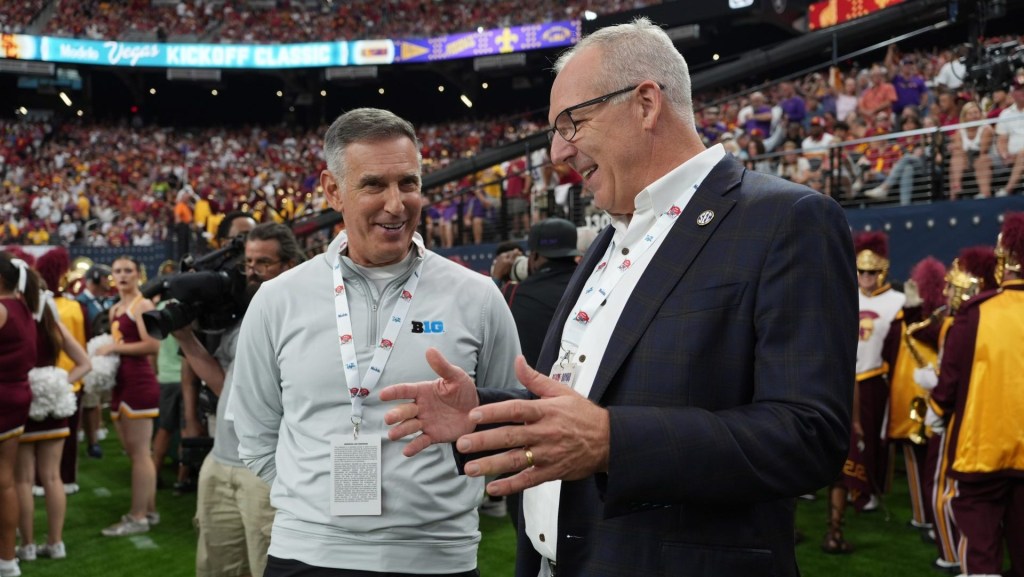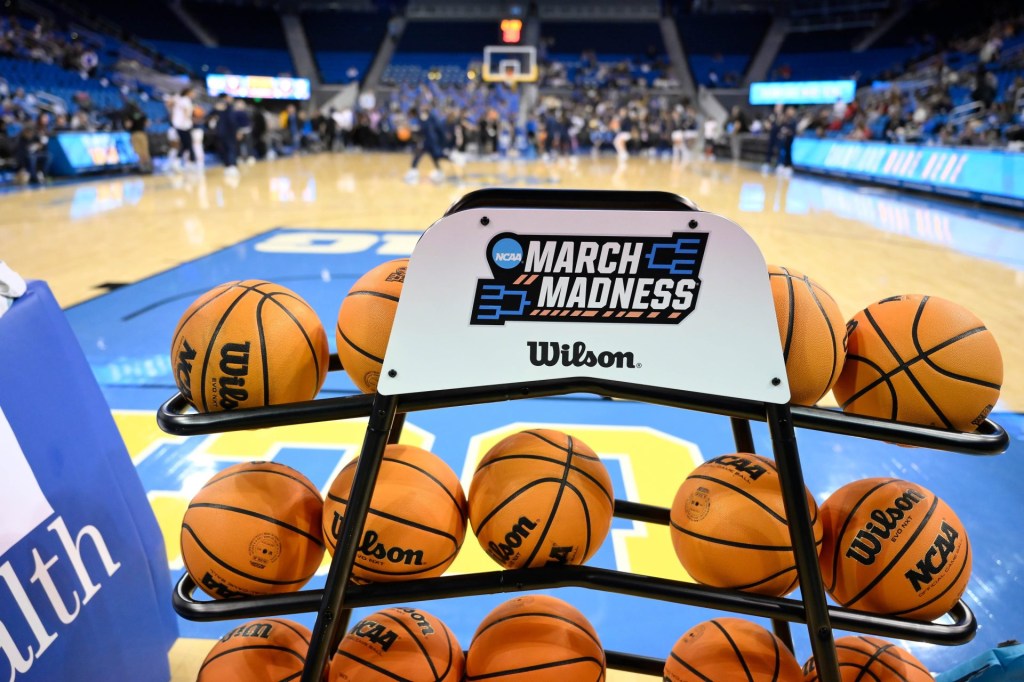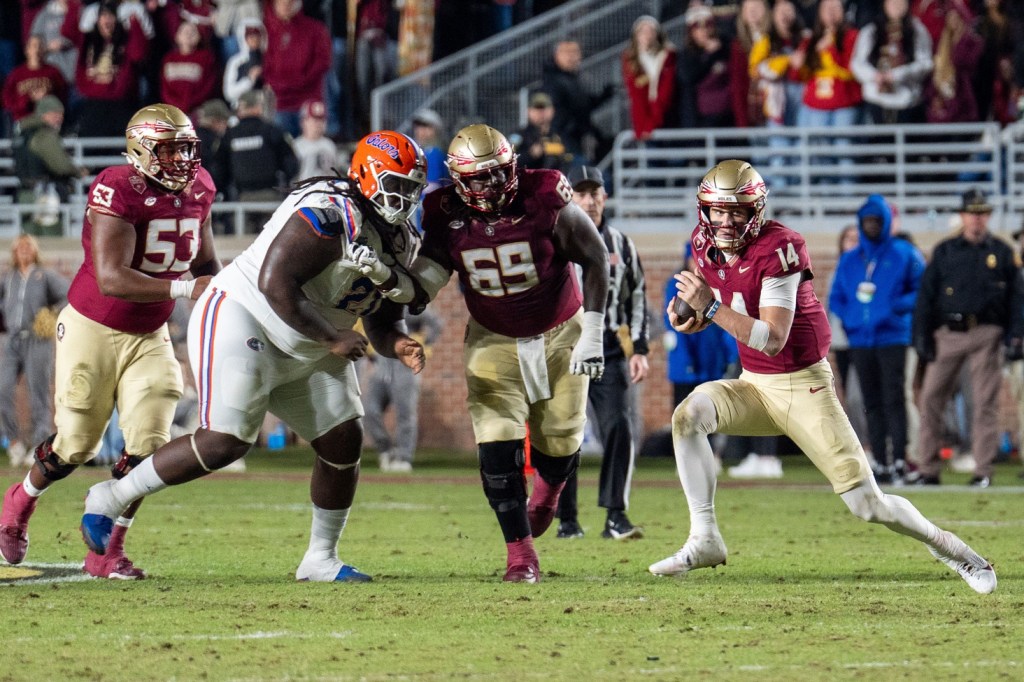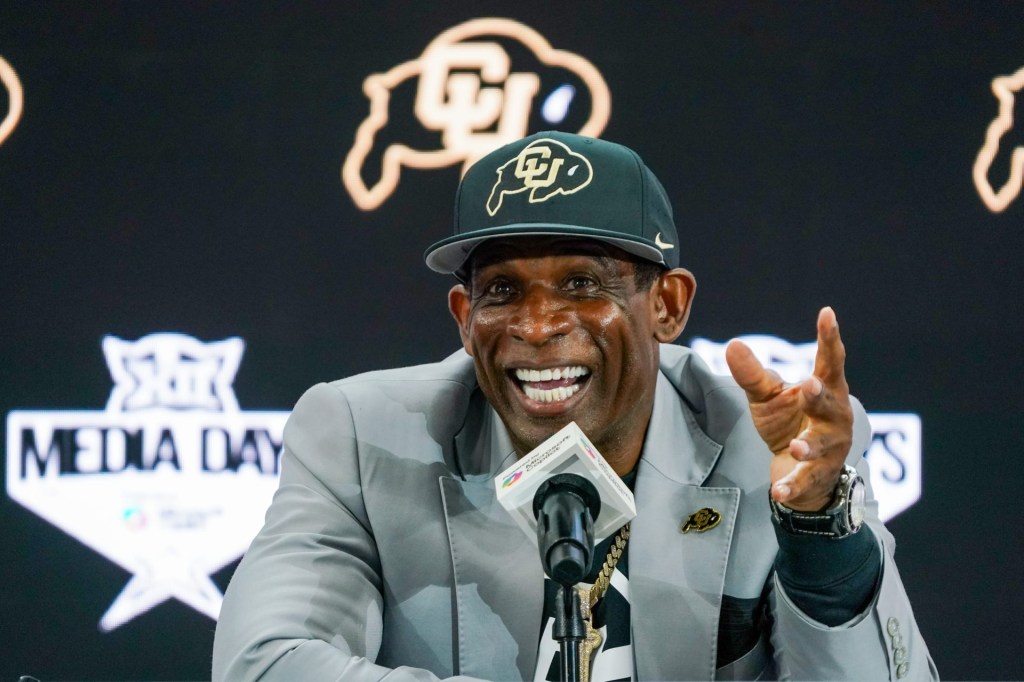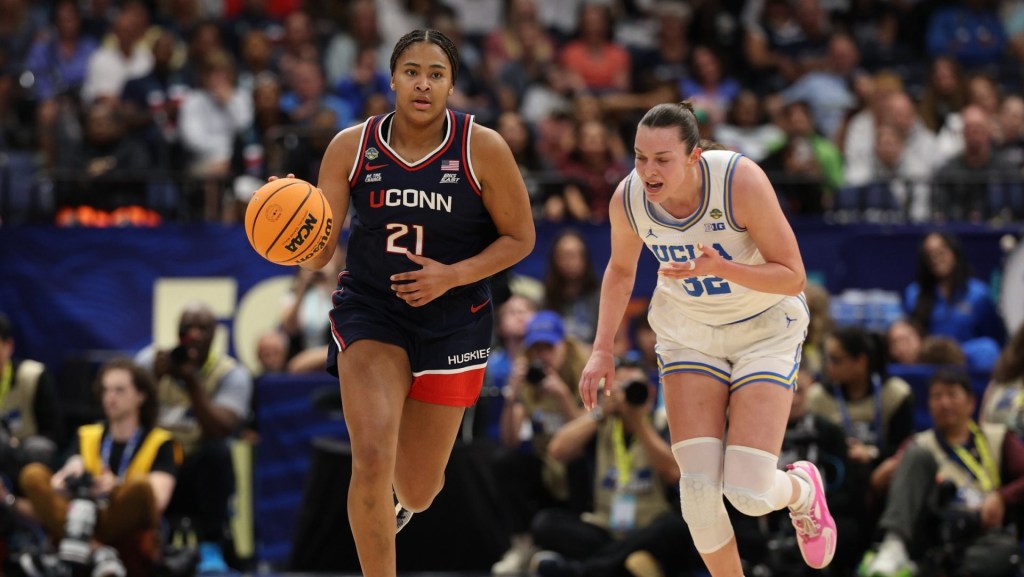By: Jay Stein, @JStein209

Front Office Sports is delighted to have had the opportunity to talk with Brandon Urry, Program Coordinator for the Intercollegiate Athletics Administration Masters Program at the University of Nebraska. Prior to taking his position at Nebraska, Brandon worked in numerous roles in various collegiate sports programs, including California State University, Long Beach Fullerton College and Cypress College. Now at the University of Nebraska, Brandon has helped to develop and administer the launch of the new Master of Arts in Business in Intercollegiate Athletics Administration (MAIAA) Program, while also leading a program seminar course. He was more then happy to offer up his time and share his fascinating journey in sports, what it’s like working with a major Division I athletic program, the various challenges people should expect working in sports and some great insight in positioning yourself to work in sports.
Could you describe what your time has been like at the University of Nebraska and with the program you are supporting?
It’s a newer program that was formed relatively quickly. When I was brought on board we were actually in the process of getting our first cohort admitted.
It’s a two-year program, and in the first year is when the majority of academic course work takes place. There’s also a guaranteed paid internship within the Nebraska Athletic Department. [The internship] is part time, twenty hours a week, and paid at nine dollars an hour, which doesn’t seem like much, but getting a paid sports internship right off the bat can be challenging.
We have a unique platform in our partnership with Nebraska Athletics. The brand that Nebraska has not only from their football presence and past, but also across the board with the entire athletic department is outstanding. Interning with the University of Nebraska’s Athletic Department, the experience, and what it can do for individual is great for those wanting to get into the industry.
There’s anywhere from around two hundred to three hundred different graduate [sports business] programs out there. They might be in the college of education or the college of kinesiology, but there’s not really a whole lot that are in the college of business. The curriculum in our program reflects a business curriculum. Five of the courses that students take are MBA courses — business strategy, financial accounting, managerial marketing, management, and organizational behavior.
We are strictly an on campus program and only do admissions in the fall. We admit ten students; so it’s a small cohort that gets admitted once every year.
There’s a lot on the horizon for us that we’re still working towards. We are currently developing our brand among sports management programs to become a leader in educating individuals who are ready to work in the industry, whether it is at the college or professional level.
Whether it’s volunteering, paid internship or going to networking events and starting to build your network, how important is it to get involved as early as you can?
It’s very critical. I think the earlier you can get started the better; but also figuring out what you want to do within sports is important.
Within sports business at the college level, you could be an athletic director, director of compliance, you could be the director of academic services, life skills, or marketing. There are a variety of different areas that require different skill sets.
[That said] you can’t just shotgun approach it, hoping to get in at some point, you need to figure out early on, do I want to go into compliance? Do I want to do marketing? What are my skills, what are my interests?
I encourage our students in their first year to do an active search through the guest speakers that we have in our class from our own athletic department and from surrounding universities and also informational interviews they complete as a part of my class. It helps them in figuring out what area they want to go into, and the sooner they get that figured out, the better it is for them.
Do you feel students enrolled in sports business programs, like the one at the University of Nebraska, should really focus on one particular area of business or is it better to have more of an open mind to get your toe in the door and be able to move your way around once you get into sports business?
It really depends on the individual, it points back to what skills they have and what they’re willing to develop.
Keeping your eyes open while you’re enrolled in a program or while you’re looking for the first job is definitely good. You really don’t know when an opportunity is going to present itself, so it’s never a good idea to close a door.
Be reasonable, be practical with yourself, as far as where your strengths lie. Sometimes that’s what it boils down to, being able to teach yourself skills or go outside of yourself to get additional education that you might not get through any specific program.
If you know what you want to do, keep on it. But keeping your eyes open is always going to lead to other things, and is always a good idea.
What challenges should students prepare for when aspiring to work in sports business?
One [challenge] that really separates those who really want to work in it and those who don’t [is] the time commitment that it takes to get where you want to be. Working in sports is definitely not confined to a nine to five, Monday through Friday type of job, especially when you’re at the professional level or at the college level.
Whether you’re single, or you have a family, how much time are you willing to give? Many times people are traveling, and they’re not home for Thanksgiving, they’re not home for Christmas or other holidays depending upon what’s going on in sports at that time of the year with their team or organization. So that’s something that you have to know getting into it, and that really separates interested individuals.
Once you start working in sports, you begin to understand the kind of commitment it takes to be successful and to move up and further your career.
[Another challenge] is that there’s no certain career path or a way that you’re supposed to get through. On the bottom of [the Front Office Sports] website it says ‘Everyone has their own story, what’s yours?’ It’s true. Everybody that I’ve ever heard or talked to in the sports business industry, it’s interesting to see how they got into it. There’s not one set way. Sports is just a different animal.
Depending on what you want to do, you can get into it in a variety of different ways. Many times what people shoot for when wanting to get into the sports industry, is not where they end up. Which leads to a whole different topic; but in short, an individual going into sports needs to determine where their priorities in life are before they really get aggressive with it. Making sure that’s clear and having a game plan, and you’re honest with yourself. It’ll make the road a little easier for you.
What traits or qualities in people do you feel are going to most helpful and contribute to their success working in sports business?
The one thing that is a common character trait, is the fact that you’re proactive and you don’t take no for an answer. Have a no-nonsense, go get it attitude. These are personality traits or characteristics of individuals who are going to be successful in sports business.
If you had to define working in sports business using one word, what would that word be and why?
I would have to go two words: Sports business is an ‘exciting grind’. There’s often more grind than exciting but the exciting parts make it worth the grind.
We would like to thank Brandon for his time and insight! We wish him all the best in his future endeavors!
You can follow him on Twitter here or connect with him on LinkedIn here!
